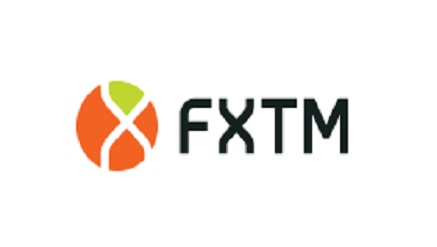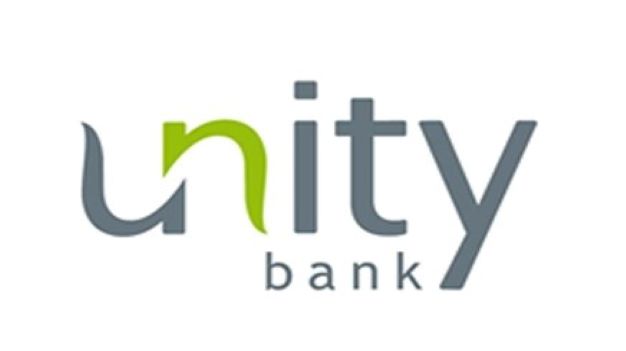E-Financial
FXTM Analysis: Trump vs Yellen & Draghi vs Weidmann

FXTM Chief Market Strategist, comments on the battle between Bundesbank’s Weidmann and Draghi on when to end the loose monetary policy:
The U.S. dollar has been on a roller-coaster this week. After dropping by more than 1% on Tuesday the dollar index recovered 0.9% from its lows.
The steep drop in the currency came after comments from Donald Trump suggesting that the dollar is too strong, and this led some traders to believe the recent rally could have come to an end, but comments from Fed Chair Janet Yellen on Wednesday brought back hopes to the bulls.
Yellen did not specify the timeline or the pace of projected interest rates hikes, but she indicated the Fed will raise rates few times a year until 2019 and warned of a nasty surprise if the central bank refrained from acting.
Although there’s no precise definition of “few”, we can reasonably believe it means two to three times a year, which leave many central banks behind.
Recent economic data supports Yellen’s views as inflation rose in 2016 at its fastest pace in five years. U.S. CPI jumped 0.3% in December to breach the 2% benchmark, and if oil prices held above $50 the trend is not likely to reverse.
This leaves only the Fed’s preferred gauges of inflation, the PCE and Core PCE Price Index below 2%. However, there is a high risk of these indices overshooting the Fed’s target if fiscal policies came into play and the Fed will be left with little options but to fasten the pace of monetary policy tightening, thus keep supporting the dollar.
On the shorter run, Trump will remain the center focus for traders and his inauguration on Friday will play a major role in the dollar’s direction. It’s highly unlikely that he will reiterate that the strong dollar is hurting the economy, but if his speech contains more protectionist policies than stimulus measures, it could harm the dollar, at least in short term.
The European Central Bank is meeting today and will most likely keep monetary policy unchanged after the central bank extended and reduced the monthly bond purchases to €60 from €80 in their last meeting. Although it might be considered a non-event, we’ll be carefully listening to Draghi to see if the recent improvement in Eurozone data, especially when it comes to inflation, will force the ECB to start considering unwinding their QE policies.
PMI’s across the Eurozone reached 5.5 years high in December and inflation climbed to 1.12, the highest since August 2013. Meanwhile German inflation jumped to 1.7%, thanks to higher oil prices.
This will undoubtedly create a battle between Bundesbank’s Weidmann and Draghi on when to end the loose monetary policy. Of course, Mr. Draghi has his reasons, especially since political risks will intensify in the next couple of months with presidential elections in France, Germany and the Netherland’s, but once we’re over it, I believe the ECB will start ending their untraditional QE policies. This suggests the Euro is likely to remain under pressure until probably mid-2017.
E-Financial
Majority of Nigerians do not Trust Govt with Tax Revenue – SBM

Majority Nigerians do not trust the government to properly utilise their tax payments for good use, according to a survey by SBM Intelligence across nine cities.

The survey highlighted why recent tax reforms have triggered widespread anxiety and resistance.
“Survey data from 200 respondents across nine cities indicate that 68.5 percent of Nigerians completely distrust the government’s use of tax revenues, whereas only 27.5 percent view the reforms as beneficial to the country, ” SBM intelligence said in its recent report titled Taxing Patience.
Nigeria’s 2025 Tax Reform Acts took effect in January, introducing the most comprehensive overhaul of the tax framework in decades. The reform has created more awareness among Nigerians than ever before, increasing their further distrust in the government’s use of tax revenues.
The distrust reflects years of poor service delivery and weak accountability, shaping public doubt toward the new tax system despite assurances that the reforms are designed to ease burdens and improve fairness.
“In the past, people avoided tax because they felt the government wouldn’t provide basic amenities,” businessday quoted Okanlawon Hakeem, a Lagos-based businessman, as saying.
“You drill boreholes yourself, pay for public transport yourself, and sometimes fix your local road yourself. So, you ask yourself what the government is doing with the tax money.”
The SBM Intelligence report noted that access to reliable electricity, improved security and better roads were the clearest signals that would make tax compliance worthwhile.
“46 percent of participants identified improvements in roads and security as their primary motivation for tax compliance,” SBM Intelligence noted, explaining that service delivery, rather than enforcement alone, is likely to shape taxpayer behaviour.
Government officials have defended the changes as necessary to improve public finances and reduce Nigeria’s dependence on oil revenue, pointing to the country’s historically low tax-to-GDP ratio.
With a tax-to-GDP ratio of less than 10 percent, Nigeria has lagged behind regional peers such as Ghana and Kenya. Taiwo Oyedele, chairman presidential fiscal policy and tax committee, hopes the reforms will lift the ratio toward 18 percent over the medium term.
Public sentiment, however, has not moved in step with these fiscal ambitions. According to the report, only 27.5 percent of people believe that the new tax laws are good for the country.
The report also suggests that greater awareness of the reforms often coincides with stronger skepticism rather than acceptance.
Distrust cuts across regions and occupations but is especially pronounced in major commercial centres.
The report mentioned that people in Lagos and parts of the Northeast have the strongest resistance and protest sentiment, reflecting concerns about enforcement, fairness and legislative integrity.
In its Year Ahead 2026 outlook, SBM Intelligence projects that protests are likely as the real impact of the new framework becomes clearer. The report points to the June 2024 youth-led protests in Kenya, which resulted in a reversal of the policy.
In Nigeria, where inflation is only just beginning to show signs of easing, the tolerance for perceived government excesses, including lavish convoys and budget padding, is at an all-time low.
Business owners, traders and informal workers expressed particular unease, fearing the reforms could deepen the problem of double taxation. Many worry that government levies will exist alongside rather than replace the fees already collected by unions and non-state actors.
“ Nearly a third of business respondents said they expect to pay both official taxes and union fees,” the report stated.
For informal workers such as market traders, drivers and artisans, this fear is grounded in experience. Many already make daily payments to unions or associations, often under pressure.
Without a clear plan to eliminate these parallel charges, new government taxes are widely viewed as an additional burden rather than a simplification of the system.
In Lagos, Kano and Onitsha, constant electricity emerged as the strongest trigger for compliance. In Abuja, Port Harcourt and Bauchi, respondents prioritized roads and security. Across cities, the message was consistent: willingness to pay is conditional on visible outcomes.
Analysts warn that without clear improvements in service delivery, stronger enforcement could harden resistance rather than improve compliance.
The report stated that without rapid, visible improvements in public services, the government risks collecting more money while winning.
E-Financial
Why FirstBank Wrote off N748Bn Bad Loan – Otedola

Femi Otedola, group chairman, First Bank Holdings, has justified the company’s decision to write off N748bn in legacy non-performing loans, saying the move was a deliberate strategy aimed at securing long-term financial stability, even though it significantly reduced reported profits.

Femi Otedola, group chairman, First Bank Holdings,
Otedola made this known in a post on his X handle, where he explained that the large-scale provisioning led to a 92 per cent drop in the holding company’s profit figure.
According to the billionaire investor, the write-off was in line with the Central Bank of Nigeria’s directive encouraging banks to confront non-performing loans openly instead of postponing the issue.
“At First HoldCo we decided to clean house properly. We took a huge one-time hit of N748bn to admit old bad loans instead of pretending they do not exist. That is why profit looks like it crashed by 92 per cent. Painful headline, but it is a serious long-term move,” he wrote.
He noted that the decision was taken to finally address problematic loans accumulated over previous years and to strengthen confidence among stakeholders.
“Why do this now? Because the CBN is pushing banks to stop kicking problems down the road. So First HoldCo basically closed the chapter on messy loans from past years which sends a clear message that borrowing has consequences and it helps rebuild trust,” Otedola added.
Despite the scale of the write-off, Otedola maintained that the bank’s core business remained solid, stressing that strong earnings demonstrated the institution’s underlying financial strength.
He disclosed that the bank generated N2.96tn in interest income and N1.91tn in net interest income, figures he said were sufficient to absorb the clean-up while keeping operations stable.
“The key point is this: our business itself is STILL strong. It made N2.96tn in interest income and N1.91tn in net interest income, which gave it the strength to take the cleanup and still stay standing,” he stated.
Looking ahead, Otedola expressed confidence in the bank’s future, saying the balance sheet clean-up has positioned First Bank well for recapitalisation and sustained growth.
“Now at First Bank and beyond we go into 2026 lighter, cleaner and better prepared for the recapitalisation era and serious growth. Bad loans cleared + strong income engine + long-term thinking = real value creation,” he concluded.
E-Financial
Unity Bank Unwraps Mobile App to Deepen Digital Banking Experience

Unity Bank Plc, Nigeria’s retail lender, has launched an upgraded version of its mobile banking platform, Unifi, as part of ongoing efforts to improve customer experience and reinforce its proposition in e-business.

Speaking on the upgrade, Adenike Abimbola, divisional head, Retail, SME, Digital Banking & Fintech Partnerships at Unity Bank, said the improvements were built on the back of continuous interrogation of the platform to be more responsive to customer feedbacks which are being received overtime in our interactions and engagements.
“Digital banking has become an integral part of everyday life, particularly for retail customers who expect speed, dependability, convenience, and security as standard. With the latest upgrade to Unifi, we are responding directly to these expectations by enhancing functionality, strengthening security, and simplifying key payment and transaction journeys. Our goal is to ensure that customers can carry out their banking activities seamlessly, confidently, and without friction, anytime and anywhere,” Abimbola said

 E-Financial3 days ago
E-Financial3 days agoAccidental Billionaire Opts for Jail Instead of Returning Money Credited Him by Mistake

 News3 days ago
News3 days agoUS Set to Deport 79 Nigerians on Criminal List

 News3 days ago
News3 days agoUngoverned AI is Quietly Scaling Risk in Nigeria – Dr. Naiho

 Telecom3 days ago
Telecom3 days agoAirtel Nigeria Commits to Boosting Nigeria’s Digital Infrastructure

 E-Financial3 days ago
E-Financial3 days agoSEC Warns of Potential Ponzi-style Risks in AURUM BOT, ModMount

 E-Business2 days ago
E-Business2 days agoOADC Lagos Reinforces Commitment to Local Data Hosting and Digital Transformation @ NDPC’s National Privacy Week Summit

 Telecom3 days ago
Telecom3 days agoGoogle, African Partners Launch WAXAL to Empower 100m Africans in AI Era

 News1 day ago
News1 day agoNew Study Reveals How Moniepoint Powers Nigeria’s Downstream Oil Sector with Same-Day Settlements and Working Capital Boost















